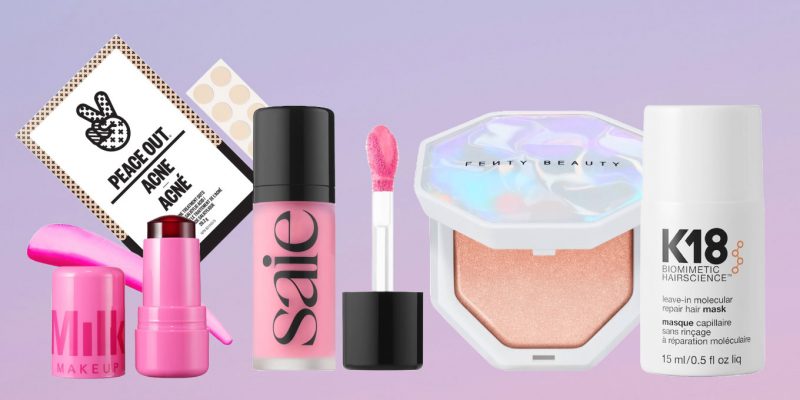Beauty
Skin care 101: The benefits of face masks
Nix dry skin, plump away fine lines and brighten you skin all with face masks.
by : Jennifer Weatherhead Harrington- Sep 3rd, 2013

In the never ending quest for
healthy skin, we’re always on the lookout for products and treatments that give us amazing results
and can be easily added into our skin care routine. One of the best ways to target many skin issues (think fine lines, wrinkles,
dry skin, rosacea, oily skin and even blemished skin) is with a face mask. You can pick up a last-minute treatment at the drugstore, book yourself an intense session at a spa or whip up your own at home – face masks come in plenty of options. But to make sure you target the right issues for your skin, we enlist the help of California-based
El Encanto hotel‘s Spa Director Stephanie Phelan, and Spa Operations Manager, Lana Storchak from the
spa at the Ritz-Carlton Toronto, for face mask basics before you start applying all that clay, gels and avocado to your skin.
The best drugstore MAKEUP AND BEAUTY finds
Do you need a face mask?
Basically anyone can benefit from adding a face mask into their skin care routine (even for dry skin, oily skin or aging skin). The key is finding the right face mask for you and your skin with so many options out there. The best way to determine what type of face mask you should be using, get a skin assessment done with an esthetician, who can help tailor your skin care routine for you – including a facial mask.
SKIN CARE: How to deal with sensitive skin
Face mask benefits
Face masks give your skin a boost of whatever you’re looking for. “It depends on the type of mask and skin type,” says Phelan. “But we love them because they’re the most concentrated, results driven products.” Phelan recommends using your specific mask 3-4 times per week for the best results. Storchak agrees. “There are many benefits. Masks can be used to moisturize, detoxify, increase circulation and replenish nutrients. Above all, they add an extra dimension to your skin-care routine,” she says. “Plus, they’re truly pampering!”
Find out the difference between face masks at the spa versus at home. PLUS some great at-home mask recipes on the next page …

Know your skin type
The mask you choose and that is best for your skin is all to do with your skin type. “For dry skin, a mask can be hydrating, for rosacea a mask can bring inflammation down and heal the skin,” explains Phelan. “A mask for acneic skin will calm and purify the skin. Anti aging masks deposit antioxidants, brighten and hydrate the skin, great for fine lines and wrinkles.”
Face masks at home versus the spa
The question is, do you need to make an appointment at the spa every time your skin needs that extra boost? Or can you do a mask at home? “Both are very important,” says Storchak. “Homemade masks are easy to prepare and can be very relaxing when used while you’re taking a bath. But before using any homemade facial masks, always test it on another small part of your skin (such as your forearm) to ensure that you don’t have any allergies.” In other words, at-home masks are great for in between spa visits and for a little me-time.
“The professional masks are great as well, but should only be administered by a professional esthetician or spa technician,” advises Storchak “These contain active ingredients, which can cause irritation if used improperly. They also provide immediate results.”
GALLERY: The best HYDRATING skin care products
At-home masks
Here are some of Storchak’s favourite at-home mask treatments for in between those spa visits.
Oily skin: Try the Kiwi Mask
Ingredients: 1 Squeezed kiwi fruit, 1 spoon of a fresh lemon juice
Instructions: Mix the ingredients. Apply mask on cleaned skin for 15 minutes. Rinse with warm water.
“Kiwi and lemon both contain vitamin C which is an antioxidant,” says Storchak. “The citric acid in lemon juice clears pores, while cleansing and brightening the skin.”
GALLERY: The best products to fight FINE LINES AND WRINKLES
Anti aging: The ultimate moisture mask
Instructions: Mix equal parts mashed avocado and mango. Apply to skin for 15 minutes; rinse with warm water.
For oily skin, add a bit of water to the mixture before applying. Use warm milk if your skin is dry.
“The key to keeping skin looking young is to regularly exfoliate and moisturize,” explains Storchak.
Key ingredients to look for
Whether you’re booking a spa appointment or picking up a selfie mask at the drugstore, Phelan recommends these key ingredients based on skin types.
Sensitive skin:
“For sensitive skin, we would use the Osea Sensitive Mask (this contains three types of algae) and Amala’s Soothing Yogurt mask (this contains desert fig, Nopal leaf and Moroccan Chamomile). For sensitive skin its best to use fruit enzymes and avoid AHAs for exfoliation.”
Anti aging:
“We use the Sun Repair Mask from Osea (Undaria algae powder, green tea) and for Amala we use the Collagen mask (cocoa bean, acai, acerola)”
Oily skin:
“Try a Red Algae Mask (Red algae, French Red clay and willow bark), or a Purifying clay mask (blue lotus, green and white clay, algae extracts)”
Dry skin:
“A white Algae Mask will help hydrate the skin (kelp, copper and zinc peptides and white tea), while a Hydrating Yogurt Mask (Jasmine, Macadamia Nut and Rosehip seed) is also great.”
READ MORE:
Beauty rules to lve by: From skin to makeup, to hair
6 simple skin care rules to live by
Get the look: Bare beauty
7 great products for sensitive skin
Newsletter
Join our mailing list for the latest and biggest in fashion trends, beauty, culture and celebrity.
Read Next

Fashion
Are Fashion Brands Getting Greener?
While the fashion industry is making a lot of noise about being more sustainable, a closer look shows that its earth-friendly commitments are often more illusion than reality.
by : Marouchka Franjulien- Apr 19th, 2024

Beauty
What Beauty Packaging Is Actually Sustainable?
We sought out leaders in the field to help us get to the bottom of the blue bin once and for all.
by : Victoria Christie- Apr 19th, 2024

Culture
This University Elevates Women to New Professional Heights
You shouldn’t have to pause your life to move forward in your career.
by : ELLE Canada- Apr 16th, 2024




